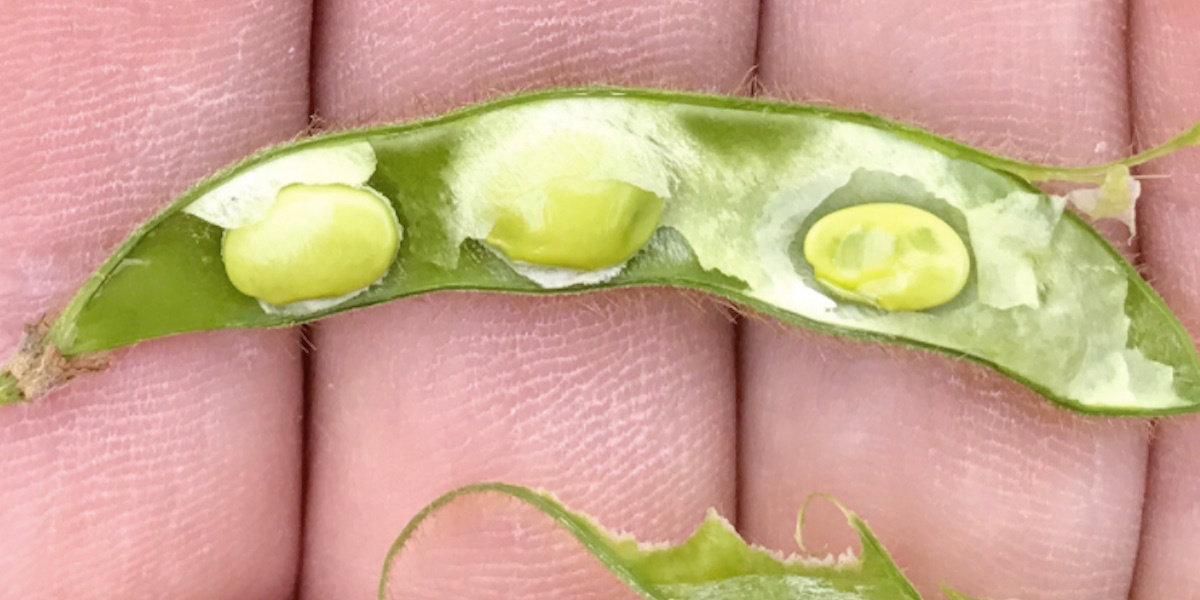
Scientists Skip Monsanto Dicamba Summit as Controversies Mount Over Damaging Herbicide

Several U.S. weed scientists have turned down an invitation to attend
Monsanto‘s dicamba summit near St. Louis this week, as controversies unfold over the company’s new Xtend Crop System, Reuters reported.
Experts have linked the highly volatile and drift-prone herbicide to the damage of 3.1 million acres of crops that are not
genetically engineered to resist the powerful chemical. Arkansas, which has logged the most dicamba-related complaints, is a step away from banning the chemical (again) next summer. The U.S. Environmental Protection Agency (EPA) is also consulting with state officials and scientists, including ones in Arkansas, on potential regulations.
According to Reuters, the agrichemical giant is hosting the summit to “win backing” from the scientists in “efforts to convince regulators the product is safe to use.” At the summit, the company plans to present data claiming that user error is behind the crop injuries.
Weed scientists from Arkansas and Missouri—Monsanto’s home state—are reportedly skipping the summit.
University of Missouri plant sciences professor
Kevin Bradley, who has extensively logged the nation’s massive swath of dicamba-related damage, told Reuters that he is not attending the summit because he does not think Monsanto will discuss volatilization.
Monsanto’s vice president of global strategy Scott Partridge told Reuters that this will be the company’s largest summit on dicamba so far and at least half of the 60 people invited plan to attend.
University of Arkansas professor Jason Norsworthy has also declined to present a summary of national drift and volatility research at the summit.
Notably, after an
Arkansas task force recommended that the state bar dicamba spraying next year, Monsanto filed a petition questioning the objectivity of Norsworthy and fellow Arkansas weed expert Ford Baldwin due to their supposed connections to Bayer Crop Science, which makes the competing weedkiller glufosinate. An ad from Bayer’s LibertyLink product featured a quote from Norsworthy, “The next best technology is already available in the LibertyLink system.”
Tom Barber and Bob Scott, who are also University of Arkansas experts, will skip the meeting as well.
“With Monsanto questioning of the integrity of our science, we felt it was best not to participate,” university spokeswoman Mary Hightower told Reuters.
Dr. Mark Cochran, vice president-agriculture for the University of Arkansas System Division of Agriculture,
defended Norsworthy.
“There are several points in the petition we need to address immediately: First, Norsworthy’s findings are anything but an outlier. It is consistent with research work in other states, including that of Kevin Bradley in Missouri, Tom Mueller and Larry Steckel in Tennessee, and elsewhere,” he wrote.
“Second, none of our researchers has ever endorsed any product, but sometimes companies use our public comments and statements without our permission.”
University of Tennessee weed scientist Tom Mueller will be attending. He told Reuters he plans to pay his own way to the event even though Monsanto said it would foot travel costs. But he noted that he was skeptical Monsanto would engage in discussions.
“I think it’s just going to be a monologue,” he said.
The controversy surrounding dicamba
started last year when Monsanto decided to sell its Xtend cotton and soybean seeds several growing seasons before getting federal approval for the corresponding herbicide. Without having the proper herbicide, cotton and soybean growers were suspected of illegally spraying older versions of dicamba onto their crops and inadvertently damaging nearby non-target crops due to drift and volatilization. Off-target crops are often left cupped and distorted when exposed to the chemical. Monsanto, DuPont and BASF SE now sell new federally approved dicamba formulations that the companies say are less drift-prone and volatile than older versions when used correctly.
Monsanto developed its Xtend system to address “superweeds” that have grown resistant to glyphosate, the main ingredient in the company’s former bread-and-butter, Roundup. Xtend crops are expected to expand across 80 million acres in the U.S., creating a $400-$800 million opportunity for the company.
The world’s largest seedmaker has been accused of having staffers ghost-write favorable studies about glyphosate that federal regulators used to determine that the chemical does not cause cancer.

 233k
233k  41k
41k  Subscribe
Subscribe 